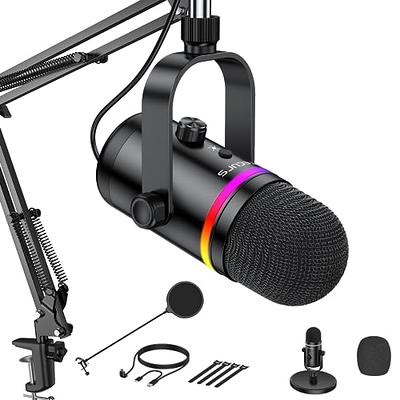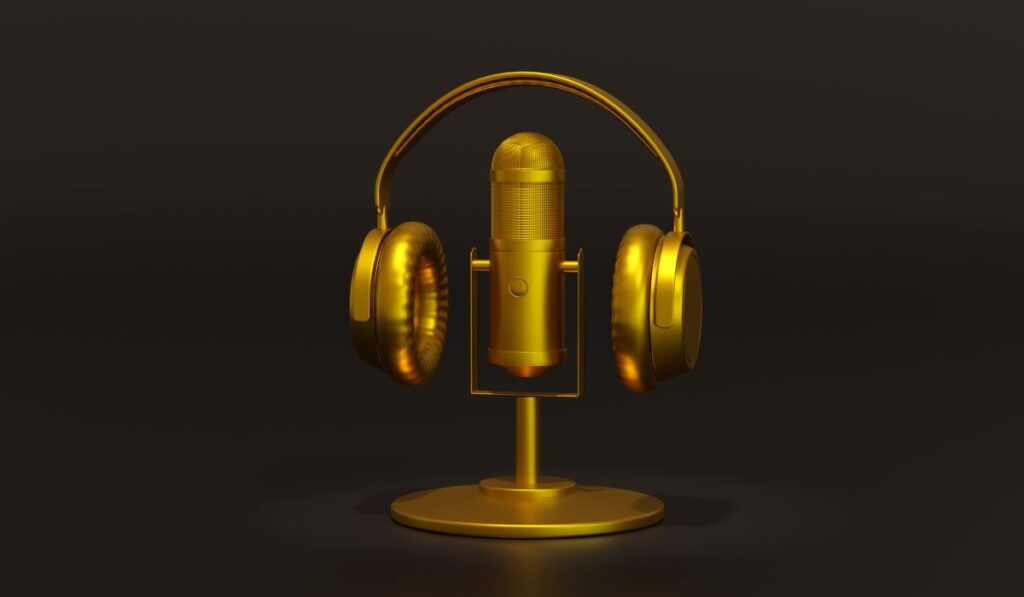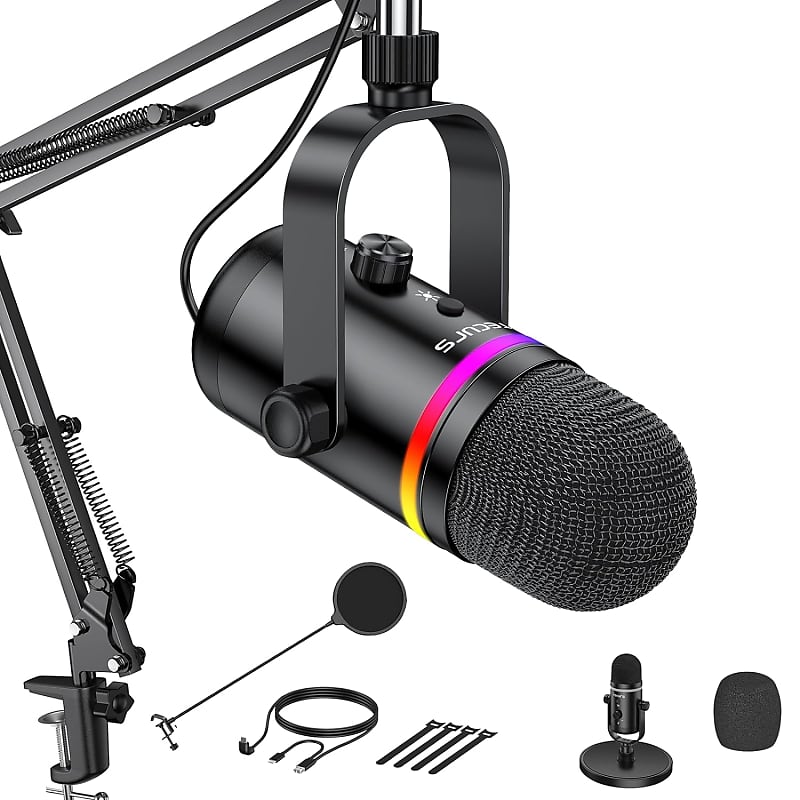The best condenser microphone is a type of microphone that uses a capacitor to convert sound waves into electrical signals. It is known for its high sensitivity and accuracy in capturing vocals and instruments with exceptional clarity and detail.
Whether used in studio recordings or live performances, condenser microphones offer superior sound quality and are favored by professionals in the music industry. With its ability to capture subtle nuances and wide frequency range, a condenser microphone is essential for any audio enthusiast or professional musician looking to achieve professional-grade sound reproduction in their recordings or performances.

Credit: shopping.yahoo.com
Types Of Best Condenser Microphones
A large diaphragm condenser microphone (LDC) is a type of the best condenser microphone that uses a diaphragm with a larger surface area. This allows it to capture more detail and provide a broader frequency response, making it suitable for recording vocals and instruments with rich, dynamic qualities. LDCs are commonly used in professional studios and are known for their warm and smooth sound signature.
A small diaphragm condenser microphone (SDC) is a compact microphone with a smaller diaphragm size. SDCs are known for their accurate sound reproduction and high transient response. They are ideal for capturing instruments with fast attack and intricate tonal characteristics, such as acoustic guitars, cymbals, and violins. They are often used in live sound reinforcement and studio recording applications.
Electret the best condenser microphones (ECM) are popular due to their affordability and compact size. They utilize a permanently charged material called an electret to polarize the diaphragm, eliminating the need for an external power source. ECMs are commonly found in consumer-grade microphones, such as podcasts, video conferencing, and personal recordings.

Choosing The Right Condenser Microphone
A condenser microphone is famous for professional audio recording due to its sensitive and accurate sound reproduction. When selecting the right condenser microphone for your recording needs, it is essential to consider several factors:
The acoustics of your recording environment play a crucial role in capturing high-quality sound. Opt for a condenser microphone with a polar pattern that best suits your recording environment. For example, a cardioid design is ideal for recording in a relatively quiet and controlled space, while an omnidirectional pattern is suitable for capturing sound from all directions.
Understanding different polar patterns is essential when selecting a condenser microphone. Each design, such as cardioid, figure-eight, or shotgun, has applications and strengths. Consider the type of sound you want to capture and the directionality of your desired recording.
The frequency response range of a condenser microphone affects the accuracy of sound reproduction. Look for a microphone that covers the desired frequency range for your specific recording needs. Additionally, consider the microphone’s sensitivity to ensure it captures soft and loud sounds without distortion.
Finally, consider your budget and long-term investment. the best Condenser microphones come at various prices, and finding one that balances your needs and budget is essential. Remember that purchasing a higher-quality microphone can offer better sound quality and durability, making it a worthwhile investment in the long run.
Considering these factors, you can make an informed decision when choosing the right condenser microphone for your audio recording needs.
Frequently Asked Questions On What Is The Best Condenser Microphone
What Is Condenser Microphone Used For?
A condenser microphone is used to capture audio with high precision and sensitivity. It’s commonly used in music studios, live performances, and podcasting to provide clear and detailed sound reproduction. Condenser mics are favored for their ability to capture vocals and acoustic instruments accurately and accurately.
What Is The Difference Between A Condenser Mic And A Normal Mic?
A condenser mic uses a diaphragm and a charged plate to convert sound waves into electrical signals. It’s more sensitive and accurate, ideal for studio recordings and capturing vocal nuances. A standard (dynamic mic) uses a wire coil and magnet to generate signals, making it stronger and suitable for live performances and instruments.
Which Is Better, Condenser Or Dynamic Mic?
Condenser mics are better for recording vocals and capturing details, while dynamic mics are more versatile for live performances and handling high sound pressure levels. Ultimately, the choice depends on your specific needs and preferences.
Does A Condenser Mic Make You Sound Better?
Yes, a condenser mic can improve your sound quality due to its sensitivity and ability to capture more detailed and accurate recordings.
Conclusion
To summarize, a condenser microphone is valuable for recording high-quality audio. Its sensitive diaphragm and dedicated power source make it ideal for capturing vocals and instruments with precision and detail. Whether you’re a podcaster, musician, or sound engineer, understanding the features and benefits of a condenser microphone is essential for achieving professional-grade recordings.
So, invest in a reliable best condenser microphone and take your audio production to the next level.

